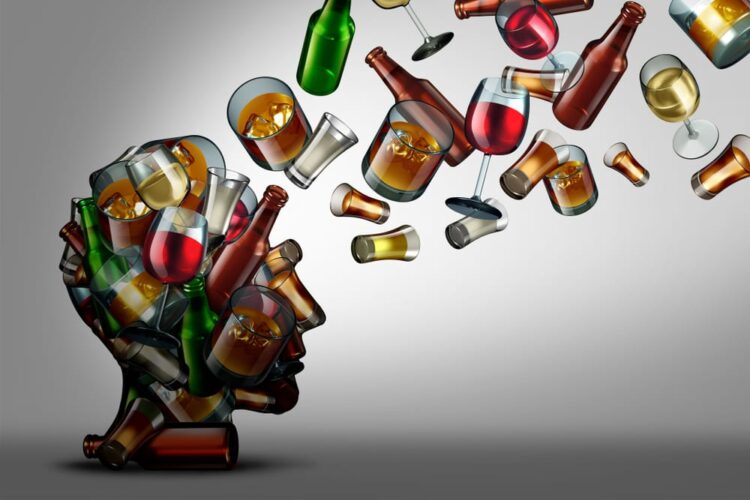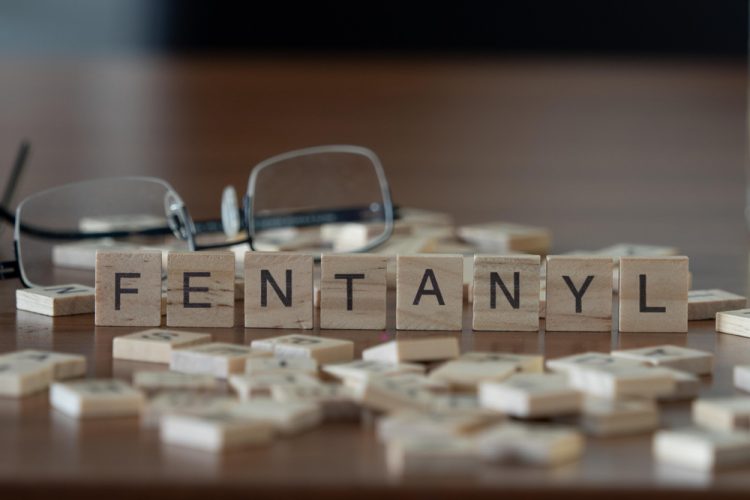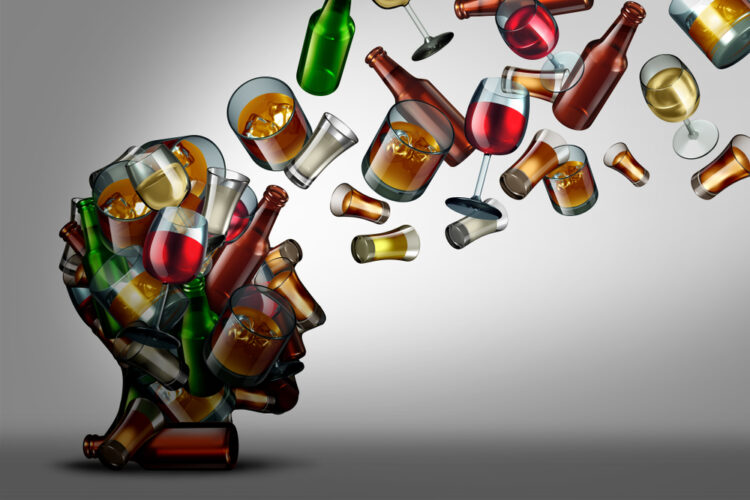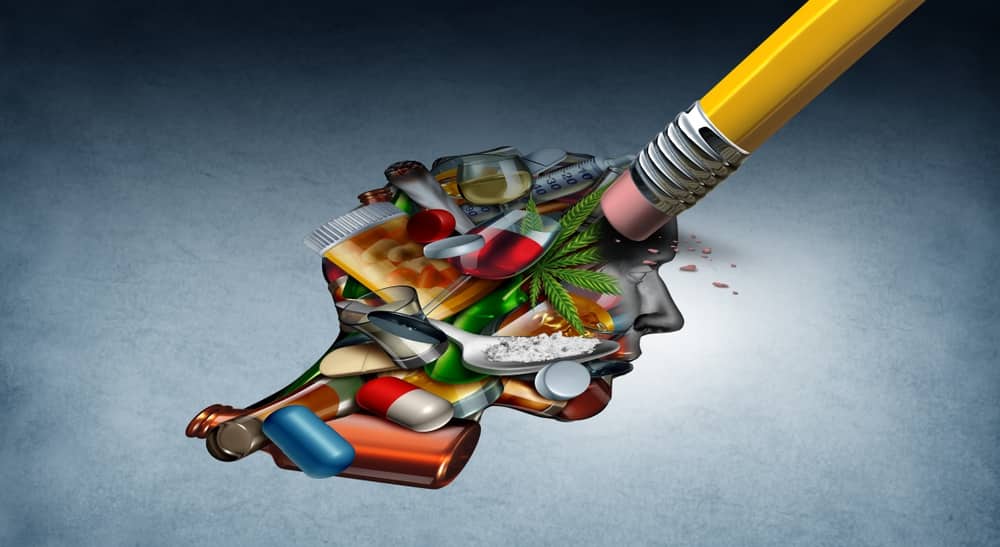
Understanding dual diagnosis.
Looking at the connection between mental health and addiction.
Many individuals who struggle with addiction also face co-occurring mental health challenges; a condition known as dual diagnosis. For example, people with alcoholism are more than six times more likely to suffer from bipolar disorder than the general population, and almost four times more likely to have major depressive disorder.
Understanding the relationship between mental health and addiction is crucial for effective treatment and successful long-term recovery.

What is dual diagnosis?
Dual diagnosis refers to the coexistence of a mental health disorder and a substance use disorder (such as alcoholism or drug addiction) within the same individual; it is also sometimes referred to as co-morbidity or dual disorder.
These disorders may interact and exacerbate each other, leading to a cycle of self-medication, increased symptoms, and difficulty in achieving and maintaining sobriety. Common mental health disorders seen co-occurring with addiction include depression, anxiety disorders, bipolar disorder, post-traumatic stress disorder (PTSD), personality disorders, and schizophrenia.
Every case is distinct and dual diagnosis can occur to anyone. Substance use disorders can involve the misuse of alcohol, prescription medications, or illicit drugs. The use of substances often makes diagnosis and treatment of the second psychiatric illness more difficult; with the behaviours and symptoms of alcoholism or drug addiction masking the indicators of the other illness and frequently preventing the individual from seeking help.

How does mental health impact addiction?
The relationship between mental health and addiction is multifaceted. Individuals with untreated mental health disorders may turn to substances as a means of self-medication, attempting to alleviate distressing symptoms or regulate their emotions.
Self-medicating refers to a patient trying to cure (or fix) an issue, without being under the care of a licensed medical professional. Read more in our blog.
The use of a substance, whatever it may be, is just a temporary fix which can leave the user struggling with additional complications – poor health, depleted finances, and damaged relationships – and in some cases a problem with dependency or addiction, further complicating their mental health challenges.
Equally, substance abuse can contribute to the development or exacerbation of mental health issues. Prolonged drug or alcohol use can alter brain chemistry, leading to depression, anxiety, or other psychological disturbances.
Research has shown that long-term alcohol abuse can lead to neurotransmitter imbalances, contributing to depressive symptoms, while stimulant drugs like cocaine or methamphetamine can induce psychosis or worsen existing psychiatric disorders.

Why do mental and substance use disorders often occur together?
There are several factors that contribute to the co-occurrence of mental and substance use disorders:
Genetics: Certain individuals may have a genetic vulnerability to both mental health disorders and addiction.
Environment: Traumatic experiences, stress, and social influences can increase the risk of developing both conditions.
Brain chemistry: Both the substances being abused (alcohol or drugs), and mental health disorders can affect neurotransmitter systems and brain regions responsible for mood, behaviour, and decision-making.
Self-medication: Some individuals may use substances to alleviate the symptoms of their mental health condition, leading to a cycle of substance abuse.
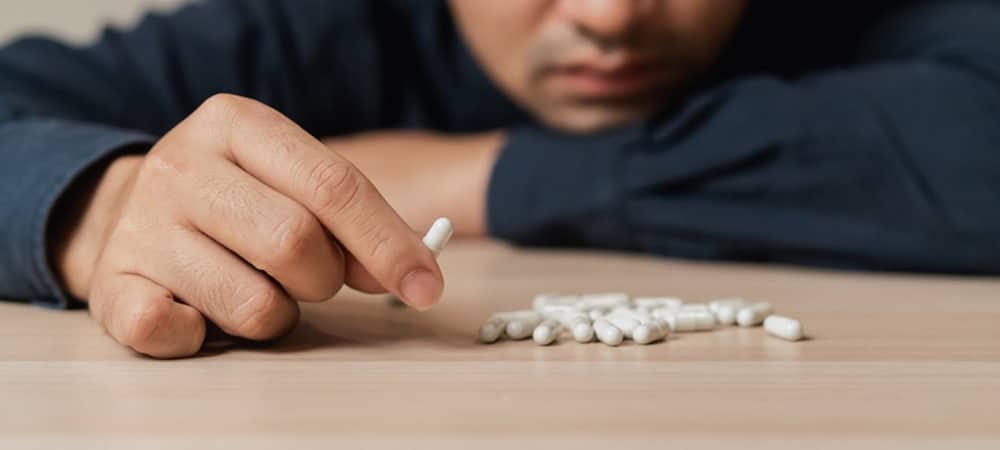
What are the treatments for dual diagnosis?
Since every dual diagnosis case is distinctive, the treatment cannot be one-size-fits-all. Effective treatment for dual diagnosis requires an integrated approach that addresses both the mental health disorder and the substance use disorder simultaneously, and will include:
Medication-assisted treatment: Prescription medications may be used to manage mental health symptoms; and reduce cravings or withdrawal symptoms associated with substance use.
Psychotherapy: Therapeutic approaches, such as cognitive-behavioural therapy (CBT), and dialectical behaviour therapy (DBT) help individuals to develop coping strategies, improve emotional regulation, and address any underlying issues contributing to their conditions.
Support groups: Peer support groups, such as 12-step fellowship programmes, provide a sense of community and shared experiences, fostering accountability and encouragement.
Holistic therapies: Complementary therapies like mindfulness practices, gentle exercise regimes including yoga, and healthy eating can promote overall well-being and enhance the recovery process.
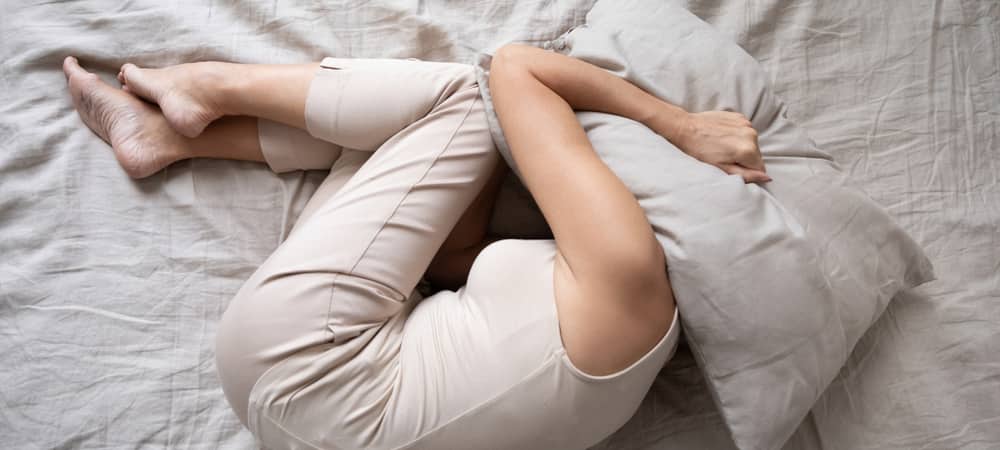
How can residential treatment be beneficial?
Residential treatment programmes offer a comprehensive and immersive approach to addressing dual diagnosis. Providing a structured and supportive environment, where individuals can focus on their recovery and build a strong foundation for lasting sobriety and mental wellness.
Here are some ways in which residential treatment can be beneficial for individuals with dual diagnosis:
Integrated treatment: Residential programmes typically offer integrated treatment approaches that address both mental health and addiction simultaneously. This holistic approach ensures that individuals receive comprehensive care tailored to their unique needs.
A simple click helps…
THE PATH TO RECOVERY STARTS WITH A SMALL FIRST STEP.
Request a callback!
24/7 support: In an inpatient setting, individuals have access to round-the-clock support from qualified professionals. This continuous care helps individuals navigate challenges and crises that may arise during the course of their treatment.
Dual-diagnosis expertise: A well-established, licenced treatment clinic will have specialised staff with expertise in treating co-occurring disorders. These professionals understand the complex interplay between mental health and addiction and are equipped to provide targeted interventions and therapies.
Structure and routine: Residential programmes provide a structured daily schedule, including therapy sessions, group activities, and recreational opportunities. This structure helps individuals establish healthy routines and coping mechanisms, which are essential for long-term recovery.
Peer support: Residential treatment offers the opportunity for individuals to connect with peers who are facing similar challenges. Peer support can be invaluable in fostering a sense of belonging, reducing feelings of isolation, and providing encouragement and accountability.

Mental health and addiction treatment clinic.
Dual diagnosis presents unique challenges that require a specialised approach to treatment. Here at Ibiza Calm, our luxury mental health and addiction clinic, set on the beautiful island of Ibiza, we are committed to providing comprehensive and compassionate care for individuals with dual diagnosis.
We treat substance use disorders, including alcoholism, drug addiction (to illegal and prescription medicine) and process addictions (food disorders, gambling, and codependency), and mental health conditions such as anxiety, depression, bipolar, and burnout.
We have a team of highly qualified international staff, with therapists that speak English, Spanish, Italian and French. We can provide a safe, fully supervised medical detox.
Our personalised treatment programmes are tailored to a client’s specific needs with a blend of counselling, group psychotherapy, mindfulness, and complementary practices, such as yoga and meditation. Alongside the more traditional methods of individual and group counselling, we use transcranial magnetic stimulation and equine facilitated psychotherapy.
For further information regarding any of our programmes, and details on admissions to our Spanish rehab centre, please contact [email protected]
Share this information, choose your platform!
What is “self-care” really?
With the demands of modern-day life ever expanding. The advent of technology means it’s not easy to switch off from work, even when you are at home. It can leave us feeling like we are perpetually running, dashing from one …
How much alcohol is too much?
In January, Health Canada, in conjunction with the Canadian Centre on Substance Use and Addiction, released new guidelines on alcohol consumption. They state that not drinking alcohol at all is best, it leads to better health and better sleep. For …
What is Fentanyl? And why is it so dangerous?
Fentanyl has been making the headlines again in recent weeks. The drug first came to worldwide public attention back in 2016 when it was reported that the megastar Prince had died from an overdose. Data published last month by the …
Alcohol Awareness Week 2021
Alcohol Awareness Week 2021 – Alcohol & relationships The UK’s Alcohol Awareness Week runs from the 15th – 21st of November, and this year’s theme is alcohol and relationships. The premise of the week is to get people “thinking about …







